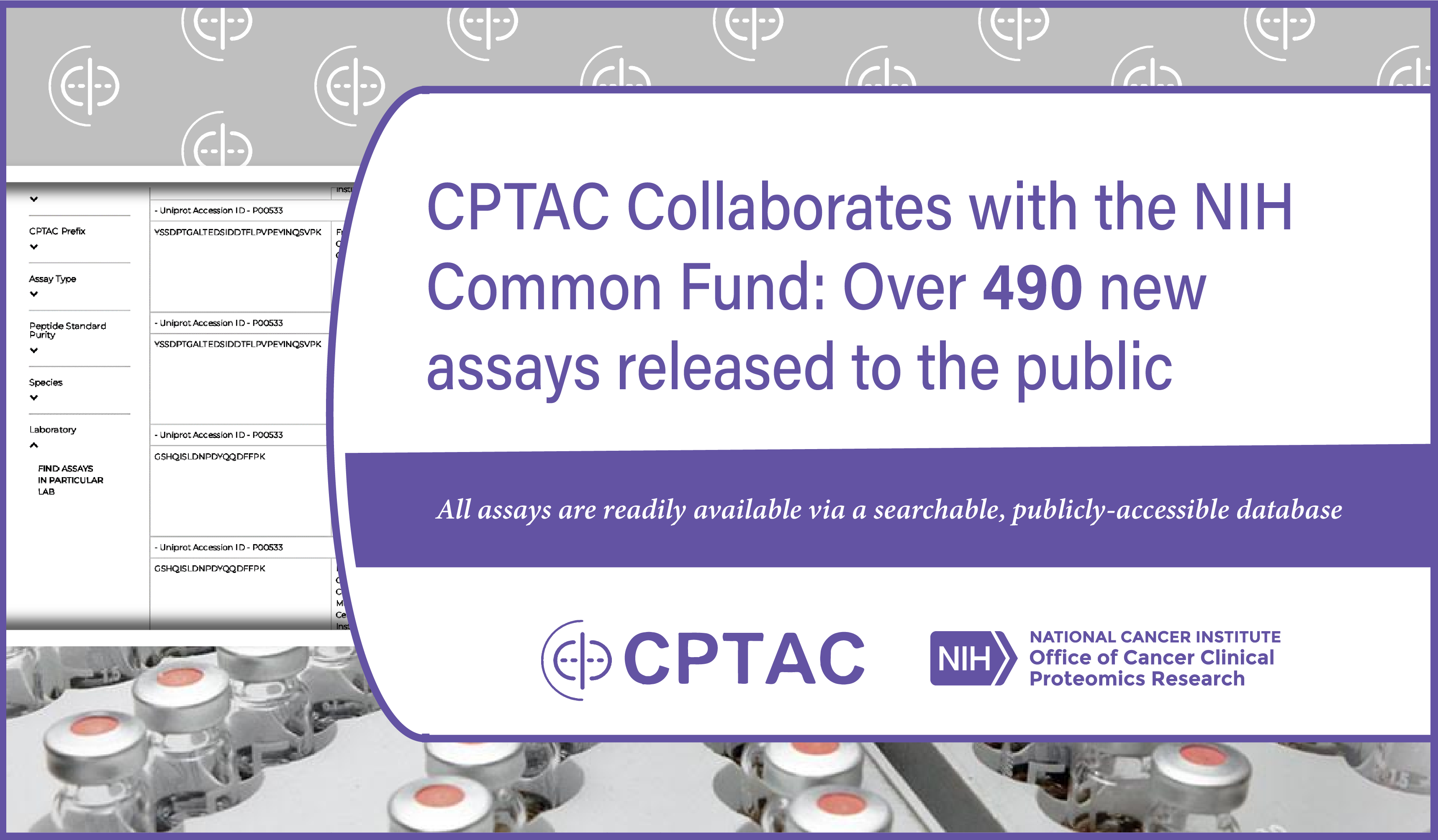CPTAC investigators from Washington University School of Medicine in St. Louis have developed new multiplexed assays for analyzing kinase proteins by parallel reaction monitoring mass spectrometry (PRM), a targeted form of mass spectrometry that enables highly sensitive and specific measurements. The set of new 408 assays corresponding to 234 unique proteins, present a new community resource for quantifying the proteins and phosphoproteins involved in kinase signaling.
In addition, the same investigators from Washington University School of Medicine in St. Louis as part of their partnership with the Illuminating the Druggable Genome (IDG) Program have developed 86 new assays corresponding to 52 unique dark kinases to accelerate our scientific understanding of understudied members of three protein families; the ion channels,  G-protein-coupled receptors, and protein kinases. The National Institutes of Health (NIH) Common Fund launched the IDG Program in 2014 with an overall goal to catalyze research in areas of biology that are currently understudied but that have high potential to impact human health.
G-protein-coupled receptors, and protein kinases. The National Institutes of Health (NIH) Common Fund launched the IDG Program in 2014 with an overall goal to catalyze research in areas of biology that are currently understudied but that have high potential to impact human health.
This combined set of 494 assays from IDG and CPTAC investigators are now released simultaneously and readily available to researchers via the CPTAC Assay Portal. The CPTAC Assay Portal, now containing 3500 assays, serves as a centralized public repository of "fit-for-purpose," multiplexed quantitative mass spectrometry-based proteomic targeted assays. A key aspect of the assay portal is to provide a repository where proteomic researchers from across the globe can upload and share their quantitative assays with standard operating procedures and guidelines. The portal is also designed to bring together biologists seeking to ask hypothesis-driven questions about the proteome they study with analytical chemists equipped to perform targeted proteomic assays.
Follow the steps below to access these assays:
- Go to CPTAC Assay Portal
- Select Available Assays
- In “Search” box type: “CPTAC Washington Uni” for CPTAC developed assays; or “Non-CPTAC Washington Uni” for IDG developed assays

